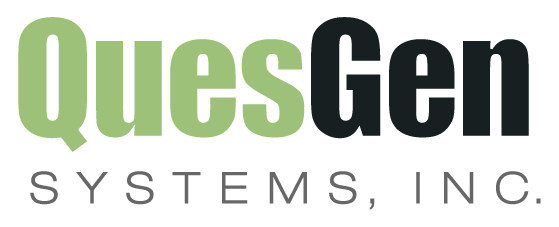Reducing Community Violence
The Violence Intervention Program (VIP) at Children’s Hospital of Philadelphia (CHOP) promotes physical and emotional health and safety for youth and families impacted by violence. Using a trauma-informed model of care, VIP partners with youth and families to provide assessment, emotional support, trauma-focused therapy, system navigation, and connection to community services.
Grounded in social justice, the VIP strives to reduce barriers and enhance equitable access to quality services by advocating for positive change within systems of care. We conduct rigorous research and evaluation to inform and improve our program and disseminate best practices..
RELATIONSHIP
QuesGen has worked with Children’s Hospital of Philadelphia for over 8 years.
QUESGEN’S ROLE
For this initiative, QuesGen handled data systems and storage, study and data strategy, and database design

Executive Summary
More than 40 percent of children and adolescents in the U.S. are exposed to some form of violence – in their home, their schools, or their neighborhoods. Victims of violence are significantly more likely to experience future violence, as both victims and perpetrators.
Hospital-based Violence Intervention Programs (HVIPs) help reduce the risk of violence in local communities by working with those injured by violence to support recovery and healing. Using a trauma-informed and client centered approach, VIPs support injured individuals in their physical and psychosocial recovery.
Since 2012, the Violence Intervention Program (VIP) at Children’s Hospital of Philadelphia (CHOP) has provided HVIP services to children, adolescents, and their families following violence-related injury. The effectiveness of the program is enhanced by the participant data they are able to collect, manage, and analyze.
They need to draw out key insights from the data, not only to improve outcomes for participants, but also to prove the efficacy of the program and secure further funding.
Project Goal
Support Recovery After Violence
The Problem: Cumbersome Software for Managing Data
With a growing Hospital-based Violence Intervention Program (HVIP), Children’s Hospital of Philadelphia (CHOP) needed to handle a lot of programmatic client-level data. At the time, they were using widely available, secure, and HIPAA compliant data collection tool developed and intended for research purposes. Unfortunately, while this solution was great for research and academia purposes, CHOP found it insufficient for clinical program data collection: it was particularly hard to use for the longitudinal nature of the program, and backend users had to perform tedious data-cleaning tasks to export, clean, and manage basic data points to further analyses.
These inefficiencies were manageable enough when the CHOP program only had a small group of participants in the program, but when the program grew, it became exhausting and unwieldy to manage all that data.
Looking at the path ahead, as program demand grew and over 100 families were being served through VIP annually, they realized they needed a better tool and solution to track clinical care.
“It could be a 2-3 day process of data cleaning just to export how long we’d been working with a given family.”
– Rachel Myers, PhD, MS (Co-Director, CHOP VIP)
Finding a Better Alternative
Thankfully, CHOP didn’t have to look far for a solution. On hearing of the issue, a doctor at the University of San Francisco’s HVIP, Wraparound Project, told them all about QuesGen’s platform for HVIPs, otherwise known as QG-Case. After hearing her reviews, partnering with QuesGen seemed like a no-brainer. Of course, change is challenging for any organization, and there would be difficulties to a new way of doing things.
There would need to be a process of moving old data into the new system — while still capturing new data — and nerves about data loss and changing processed for data entry.
Luckily, it didn’t take much convincing once the team realized how much easier their data-focused work was becoming.
Powerful Software with HVIPs in Mind
The process of entering and accessing the data was different, but no data was lost, and work was more streamlined: QG-Case was highly customizable, making it easy to add new data collection tools and reformat data collection tools as program needs evolved.
CHOP liked that QuesGen already had experience with HVIPs. Further, since QG-Case was web-based, they could access their data securely (from a phone or laptop) anywhere, like a doctor’s visit or while visiting a family at their home.
On top of this, QuesGen added a feature for them to upload documents, so they could access consent forms and other key documents remotely while in the field, while maintaining security of hard copy source documents.
The Process of Partnering with QuesGen
“QuesGen is a really wonderful partner. They’re easy to communicate with and make updates and changes, even despite the three-hour time zone difference. They listen, hear our challenges, and they’re willing to help us address those challenges. Why would we leave?”
At first, all of CHOP’s data was paper-focused, so they had to recreate everything from paper into web forms, while making sure the data all saved in the correct fields and data tables. The support received from QuesGen streamlined and helped to simplify this process. Not only was QuesGen there to handle custom requests, but they were also able to build on the database structure created for existing HVIPs, so the CHOP VIP was not forced to start from scratch.
It became clear from the start that CHOP made the right choice. “Whenever we have a new challenge, we feel comfortable asking QuesGen about it. They feel more like a partner,” says VIP Co-Director Rachel Myers. “Even if they don’t know the best way for us to do something, they’re always willing to present a set of options, explaining the tradeoffs on things like time, cost, and usability. They’re great communicators.”
“We like having the ability to make big changes quickly. We have control of the platform as well, so we can do small changes ourselves or involve QuesGen’s team for bigger changes and finish it in half the time. And we always have them for backup if something goes wrong, or if we don’t know how to do something.”
– Rachel Myers, PhD, MS (Co-Director, CHOP VIP)
Looking forward: What’s changed?
These days, CHOP VIP is significantly expanding and adding new programs. Their QG-Case usage is evolving too, but they know they can get the platform customized to fit each unique program.
Using QG-Case has made it much easier to track process metrics for their programs, which makes it easier to report to funders and other stakeholders. The frontline staff say working with QuesGen has been a huge improvement. They appreciate the convenience of the database, as it saves time and makes the team more efficient.
As the network of HVIPs grows, the VIP hopes to serve as a model for dissemination of best practices, including data collection and management.
From the client perspective:
“Using QuesGen, the way we capture data has evolved. Previously, our case managers would have encounters with families and enter it in a generic note template, but that wasn’t capturing information in the best way to support supervision, care planning, or evaluation efforts.
So we worked with QuesGen to redesign the template, and customize it for different team members based on the care they provide to our clients.”
– Rachel Myers, PhD, MS (Co-Director, CHOP VIP)
Advice from Children’s Hospital of Philadelphia HVIP
For others looking to get started with QuesGen, Myers recommends HVIPs take the time to be clear about what they want and need in a solution. “This partnership has worked well because we can articulate well the type of data we need to both put into the system, as well as extract from it. Otherwise, it would be harder to get to the right solution as quickly.”
Part of this process involves thinking discretely about your workflows: who are your users, who is responsible for data collection, input, management, and analyses. Consider how you’re using the data, including how and to whom you are reporting. You might not do it perfectly for everyone, but try to keep all these users and uses in mind. Of course, QuesGen’s HVIP product and team is there to help you figure all this out.

Michelle Abel, MSPH
Program Manager, Center for Violence Prevention at Children’s Hospital of Philadelphia

Lindsey Mitros
Outreach Manager, Center for Injury Research and Prevention & Center for Violence Prevention at Children’s Hospital of Philadelphia

Joel Fein, MD, MPH
Co-Director, Center for Violence Prevention, & Director, CHOP Violence Intervention Program

Rachel K. Myers, PhD, MS
Research Scientist, Center for Injury Research and Prevention & Research Scholar, Center for Violence Prevention at Children’s Hospital of Philadelphia

Stephen S. Leff, PhD
Co-Director, Center for Violence Prevention, & Director, CHOP Violence Intervention Program
